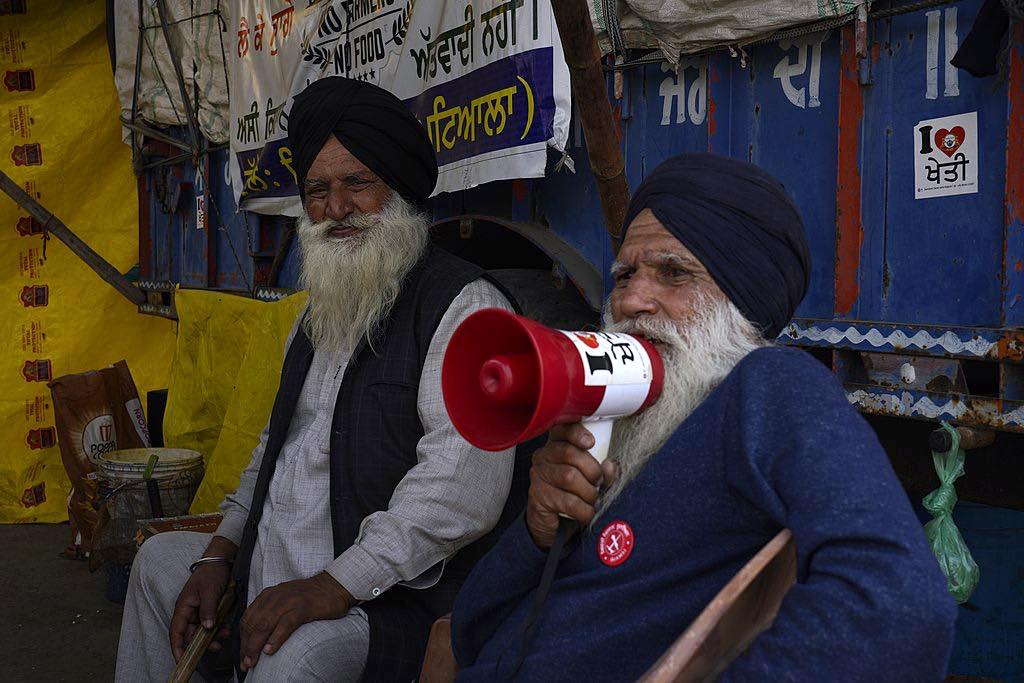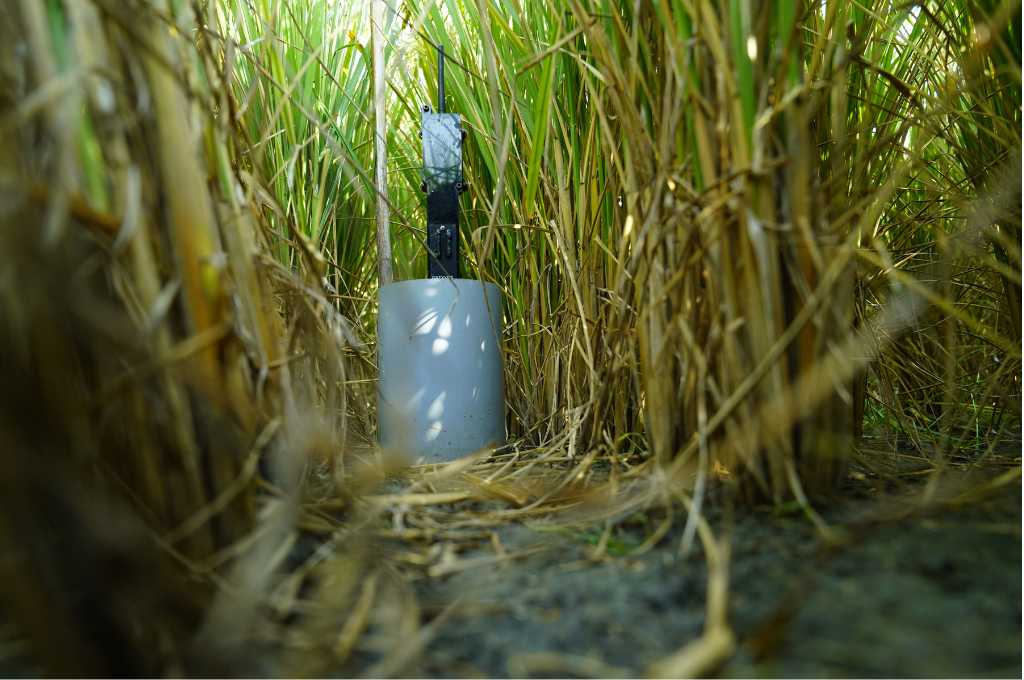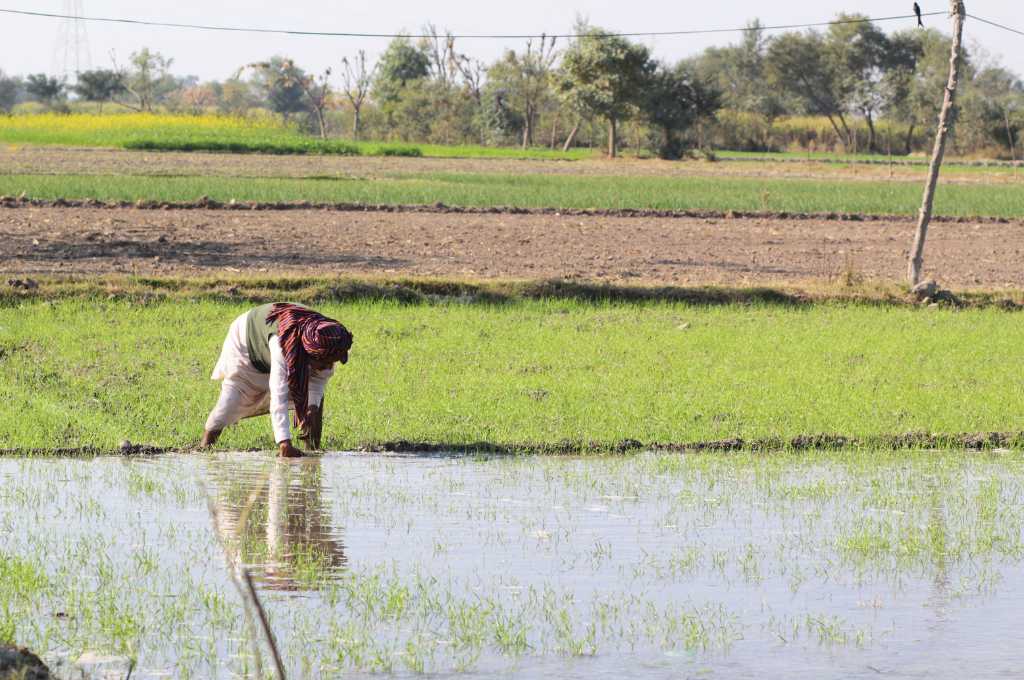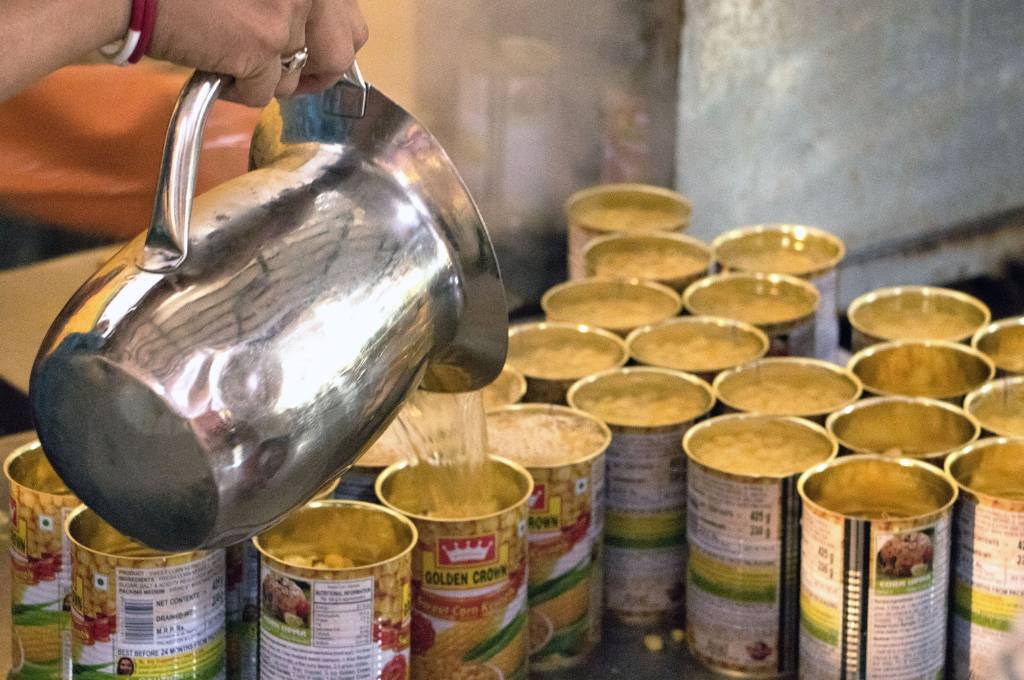In 2020, thousands of farmers and their families camped on the three borders of the country’s capital city for months. They were protesting the government’s three agricultural reform bills that were passed hurriedly through Parliament, without following due process.
In short, the bills:
a) allow farmers to sell directly to private buyers, rather than at the notified government markets, or mandis;
b) provide a legal framework for farmers to enter into contracts with companies and produce for them;
c) allow businesses to store essential commodities, cereals, pulses, etc. without any limits on how much they can store.
These laws were mostly seen as designed to suit the interests of large corporates, and would leave farmers exposed to private buyers with far more money and influence to manage prices.
When the protests broke out, the farmers said they were not consulted before these reforms were made. The government stated that there had been many consultations over the last twenty years, and that the protestors did not represent all farmers. The government also suggested that the protesting farmers had political motivations. Along with the reforms themselves, people were also unhappy with the undemocratic manner in which they were implemented.
Below is an excerpt from an episode on IDR’s podcast, On the Contrary, where host Arun Maira speaks with Kavitha Kuruganti and Siraj Hussain about the agricultural reforms, and the space that was (or was not) created for democratic processes to take shape. Kavitha is a social activist known for her work on sustainable farm livelihoods and farmers’ rights. Siraj is a former secretary of the Department of Agriculture and the Department of Food Processing.
Here we capture some of Kavitha’s and Siraj’s perspectives from the podcast episode. To listen to the entire episode, which was first aired on March 24th, 2021, click here.
Arun: Why did the process of consultation over the past decades fail?
Kavitha: Well, the key stakeholder here is the farmer, and there is no one farmer in this country. I think policymakers have still not realised that there’s an enormous diversity of farmers in the country. And it seems the consultation processes have not necessarily included farmers, as is the case in other policymaking processes. Consultations here have also been mainly held with experts, the ones who are supposed to know a subject very well, regardless of whether they are farmers or not.
In the name of consultations, if a stakeholder like the farming communities are included at all, it would be those select few unions who are already known to align with the government.
Let me confess that I am not a farmer myself. But I still know that when 41 people walked into the room for talks with the government, not a single person there could say that they had been consulted over the past 15 years. And we are talking about All India [Kisan Sabha], former leaders of Kisan Sabha and other unions—they’ve never been consulted. So let me just say that the term consultation has been, I think, allowed to degenerate into the co-option of certain people who represent a particular state. And their bias is already known to the government; one has seen it again and again.
So in the name of consultations, if a stakeholder like the farming communities are included at all, it would be those select few unions who are already known to align with the government. And that is not the case with only this set of reforms—the fact that consultations are not really genuine, deliberative democratic processes, that it is not really about capturing contrarian views. And then trying to see whether there is some meaning to what somebody completely on the other side is trying to say. That’s not the kind of consultations we witness here. So, yes, consultations might have happened on this very subject. But I don’t think they actually consulted with the farmer unions that have serious grievances.
Arun: Siraj, what can you tell us about how these consultations happen, or are meant to happen?
Siraj: Ever since the Vajpayee government circulated the draft APMC1 model laws, discussions with state governments and other stakeholders have been taking place in one form or the other. From time to time, various governments have written to the state governments to adopt those model laws. Some of them did so partially while some others made token modifications in their laws. And as late as 2017 and 2018, even this government circulated a revised form of model laws. So these laws have been on the table for a long time.
It is true that there was no consensus, and I must say that even progressive states like Gujarat and Maharashtra, have achieved eight to 10 percent agricultural growth for about 10 years. So even these promising states did not adopt the model laws fully, which means there was something in these laws circulated by the Indian government that was not found acceptable by them.
Now, at its core, as I have written several times, agriculture is a state subject. And therefore the state governments, I think, are in a better position to take a call on how they want to proceed. As far as the opening up of competition in the APMC mandis is concerned, according to the Essential Commodities Act, this is in the domain of the centre; the centre has full power. So, to sum it up, I can say that even though discussions have been going on with the state governments, the suddenness with which the ordinances were promulgated in June (2020) took a lot of people by surprise, and the fact that we had just come out of a very strict COVID-19 lockdown added to this.
Arun: So, yes, the intentions were very good from the government’s end. Agriculture does need reform and they were suggesting ways in which the states could bring this about. The states weren’t entirely in agreement with what the centre was proposing, though. So how do you make a general law more acceptable? If some stakeholders in a democracy feel that they are not being paid attention to, how should they make their voices and concerns heard?
Siraj: Actually, that is the point which has been under discussion ever since the ordinances were issued, because immediately after the issue of ordinances, the agitation began in Punjab. And, somehow, the Union Government felt that only one state seemed to be agitated about it. Therefore, they went ahead and produced the bills before Parliament. The bills were passed by the Lok Sabha after a short debate and in the Rajya Sabha it was hurried up. So it is true that the seriousness of the agitations in Punjab, was not really appreciated.
One marketing law for the whole country is what is creating so much agitation in certain regions.
If the Indian government had pre-empted the move would result in this kind of agitation, they would have probably referred the case to the standing committee of the Ministry of Agriculture. I do agree that there was a need for more discussion and wider consultation among the standing committee and the state governments. How agriculture has evolved, how it functions, how markets function, how cultivation is done, which technology is used, the level of procurement in the states, even the farm size—there is huge variation in these across states. And due to the urgency with which this matter was treated, the ability to make this distinction was compromised. So that, I think, is the root of the problem—one marketing law for the whole country is what is creating so much agitation in certain regions.

Arun: Kavitha, as you mentioned earlier, there were a lot of farmers who weren’t consulted. They had to protest and say that, look, we haven’t been included, you should have included us: a) just for the sake of democracy, and b) for the sake of finding the right solution. They had to make their voices heard. So, how should you protest in a democracy when you have not been heard?
Kavitha: I think we need systemic answers to issues like this that crop up in lawmaking. We should ensure we don’t have any law that is tabled in Parliament without first putting out the draft bill for consultations. This is something that several citizen groups have been demanding for the longest time—the need for better lawmaking processes.
No movement reaches this level of intensity without initial small-scale protest, some memoranda being given to the district collector in the beginning, and so on.
No movement reaches this level of intensity without initial small-scale protests, some memoranda being given to the district collector in the beginning, and so on. There is a lesson in here for the government, but this government doesn’t seem interested in learning and taking these small-scale protests seriously before they snowball into the large protests we are witnessing today.
This is not something that happened overnight—farmers began raising objections in July (2020) itself. We are personally aware of the fact that farmers in both Punjab and down south in Tamil Nadu submitted tens of thousands of memoranda to the government through district collectors in July and August (2020). Governments need to take some of these things seriously at this stage itself. I don’t know if India is ready to set up systems that take cognizance of citizen petitions beyond a particular number, as is the norm in other countries, but we need things like that. And until we have that, we will be dealing with protests in the kind of ad hoc manner that we are doing at this point of time, which is unfortunate.
Arun: There is one special problem here. In a matter so complex, there are many different things that have to be considered; you cannot try and solve such a complex problem with some big, bold reform or one big, bold law. It’s a process of reform. And policymakers seem to have missed this entirely when coming up with the reforms.
So, Siraj, let me ask you: What do we do here, how do we go forward?
Siraj: I wish I knew the answer. But I do believe that governments in a democracy know the pulse of the people better than any expert or bureaucrat or even NITI Aayog. So I’m sure that the party in power would have been hearing the views. And, based on that, I think they made this offer to keep the laws in abeyance for a year or a year and a half, which was an extraordinary offer, and somehow it was not accepted. So I think the government also realises that a lot of tweaking is required based on the specific situation of a state.
Every state is experimenting on how to deliver a fair price to farmers; the bottom line is that farmers deserve stability of prices and a remunerative price. Now, whatever be the mechanism, no expert, no think tank, nobody can argue that farmers should be left entirely to the market forces, and only the market forces should determine the price that the farmers receive. If this point is accepted, and if the centre acknowledges the need to find a mechanism that delivers a remunerative price to farmers, then there may be a way forward.
To listen to the full episode, click here.
—
Footnotes:
- APMC refers to Agriculture Produce Market Committees that were set up by state governments in India to help farmers sell their produce at fair prices in state-owned markets. The APMC Act, 2003, was put in place to ensure farmers weren’t exploited by powerful local or private entities.
—
Know more
- Watch #FarmLaws2020: A four-part video series featuring farmers, investors, and other stakeholders to understand the impact of the farm acts, and why farmers are protesting.
- Read about the experience of a young volunteer at the farmers’ protest at Delhi’s Tikri border.
- Learn more about why small and marginal farmers are protesting the farm laws.





